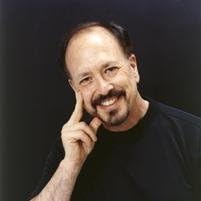David D. Friedman
关于作者
I am an academic economist recently retired after a career first as an economist and then as a law professor; I have never taken a course for credit in either field. My specialty for the past thirty some years, has been the economic analysis of law, the subject of my book _Law's Order_. I created and taught two new law school seminars at Santa Clara University. One was on legal issues of the 21st century, discussing revolutions that might occur as a result of technological change over the next few decades. Interested readers can find its contents in my _Future Imperfect_. Topics include encryption, genetic engineering, surveillance, and many others. The other seminar was on a variety of unfamiliar legal systems. Topics included the legal systems of modern Romany, Imperial China, Ancient Athens, the Cheyenne Indians, ... . It was the basis for my most recent nonfiction book, _Legal Systems Very Different from Ours_. I have been involved in recreational medievalism, via the Society for Creative Anachronism, for over fifty years. My interests there include cooking from medieval cookbooks, making medieval jewelry and furniture, telling medieval stories around a campfire, creating a believable medieval Islamic persona, and fighting with sword and shield. My wife and I have self-published two books coming out of that hobby, _A Miscellany_ and _How to Milk an Almond, Stuff an Egg and Armor a Turnip: A Thousand Years of Recipes_. My involvement with libertarianism goes back even further. I have written on the possibility of replacing government with private institutions to enforce rights and settle disputes, a project sometimes labelled "anarcho-capitalism" and explored in my first book, _The Machinery of Freedom_, first published in 1972 and now in its third edition. My first novel was _Harald_, published by Baen books. Most of my interests feed into it in one way or another, but it is intended as a story, not a tract on political philosophy, law or economics. It is not exactly a fantasy, since there is no magic, nor quite a historical novel, since the history and geography are invented. The technology and social institutions are based on medieval and classical examples, with one notable exception. My second novel, _Salamander_, is a fantasy. The setting is about fifty years after the magical equivalent of Newton, the mage who took the first large steps to converting magery from a craft to a science. The plot deals with some of the consequences. I have now published _Brothers_, the sequel to _Salamander_. My web page, www.daviddfriedman.com, contains the full text of several of my books, most of my published articles, and much else. My blog, Ideas (daviddfriedman.blogspot.com), contains fourteen years worth of essays on a wide variety of subjects.
阅读完整简历














